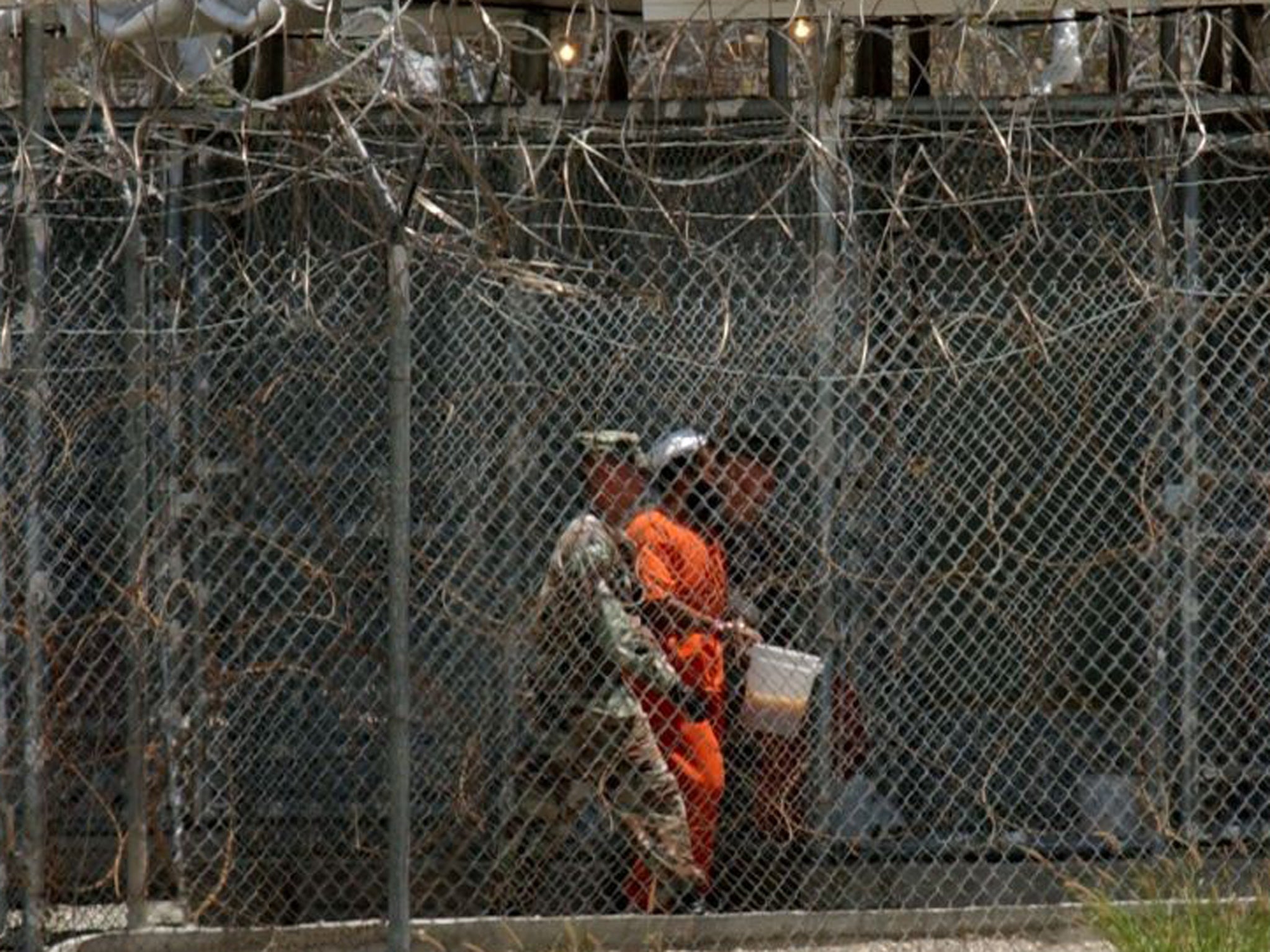President Obama to make new effort to close Guantanamo Bay after mass hunger strike
Over 100 of 166 inmates now taking part in protest against indefinite detention

President Obama is pledging a new effort to shut down the infamous prison at Guantanamo Bay where more than half the inmates are currently on hunger strike, describing the facility at the US military base in Cuba as harmful to US interests and a blight on the country's good name.
At a White House press conference, Mr Obama said he had ordered officials to review the issue, and that he would take it up once more with Congress. The prison, he declared was “contrary to who we are.” It was inefficient, and reduced co-operation with allies on counter-terrorism. “It is a recruitment tool for extremists, it needs to be closed.”
Guantanamo was opened in early 2002, the site deliberately chosen so that foreign terrorist suspects captured in Afghanistan and elsewhere - the 'worst of the worst,' according to the Pentagon at the time - could be held outside the US proper, and thus beyond the purview of the domestic judicial system.
But the prison became so controversial that even President George W. Bush wanted to close it, and Mr Obama came to office in January 2009 vowing to do so within a year. But his every effort to do so, by transferring inmates to the mainland and trying them in civilian courts, was thwarted by Congress, Democrats and Republicans alike.
At the same time, the repatriation of detainees ground to a halt, amid the difficulty of finding countries acceptable to the US willing to take them, and an effective Congressional ban on spending to carry out such transfers. This year the pent-up tensions exploded in the hunger strike, the longest and most widespread in Guantanamo's history.
It began in February, ostensibly after guards mishandled prisoners' Korans. But the underlying reason, according to prisoners and their lawyers, is despair, the sense that they have been left to rot. The last straw appears to have been the State Department announcement in January that it was “re-assigning” the senior official who had been handling the transfers, without replacing him.
The hunger strike has now spread to more than 100 of the 166 remaining inmates, at least 15 of whom are now being force-fed. Meanwhile the military tribunals on which Congress insists has been virtually unworkable. Of the 700-plus individuals who have passed through Guantanamo, only three have been tried and convicted.
Some 30 of the current detainees, including Khalid Sheikh Mohammed, chief organiser of the 9/11 attacks, will be tried. About 50 others are in a legal no-man's land, deemed too dangerous to release but against whom there is not enough evidence to prosecute. But 86, more than half the total and some of them held for 11 years, were long since cleared for release - but to no avail.
Join our commenting forum
Join thought-provoking conversations, follow other Independent readers and see their replies
Comments
Bookmark popover
Removed from bookmarks